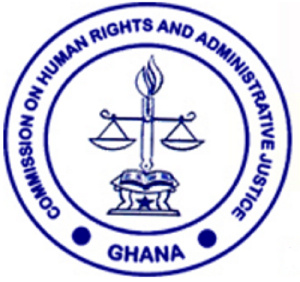- Home - News
- Polls
- Year In Review
- News Archive
- Crime & Punishment
- Politics
- Regional
- Editorial
- Health
- Ghanaians Abroad
- Tabloid
- Africa
- Religion
- Election 2020
- Coronavirus
- Photo Archives
- News Headlines
- Press Release
General News of Friday, 5 June 2020
Source: GNA
Stigmatisation is an abuse of rights - CHRAJ
The Commission on Human Rights and Administrative Justice (CHRAJ) has said stigmatisation against persons, families and communities with cases of Covid-19 was an abuse of human rights.
According to Mr Kwadjo Boahen Darkwa, the Assin Central Municipal Director of the Commission, the 1992 constitution of the Republic abhors all forms of discrimination be it gender, race, colour, ethnic origin, religion, creed or social or economics.
He was speaking in an interview with the Ghana News Agency at Assin Fosu on the sidelines of an intensified anti-stigmatization campaign in the Assin Central Municipality last Wednesday.
Mr Darkwa said stigmatising victims of the COVID-19 and their families was an impediment to efforts to stop the spread of the pandemic.
He said there was the need for Ghanaians to know the real facts about the disease to put them in a position to decipher fake news from the authentic ones being thrown at them on both social and some traditional media outlets.
“People who tested positive for the disease who had eventually been declared negative had gone through a lot of ordeals and needed to be shown love instead of being shunned by members of their communities”.
He said stigmatization should not be given a place in the fight against COVID-19 because contracting the disease was not a disgrace or a death sentence, adding that, affected persons have a high chance of recovery if cases were reported early.
The Municipal Director of the Commission said: “we only have to stay safe rather than stigmatising people.”
"We do not have to point fingers at COVID-19 patients or call them names related to the pandemic because it will affect them psychologically but embrace them in our communities".
He said, "When a COVID-19 patient feels stigmatised, he or she may not open up for management and treatment, and by so doing spread the virus gradually within communities, which could cause havoc for us as a nation".
Mr Darkwa, therefore, advised the citizenry to stop the stigma and help facilitate the integration of recovered people and fight against the virus.
Entertainment










